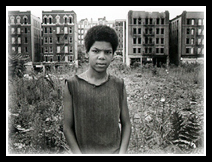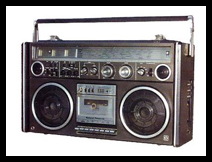-
Black History Month 2011 - Part I
February 1, 2011
Have an opinion? Add your comment below. America Still Divided ... Despite Positive Moves
-
America Still Divided ... Despite Positive Moves
In this, the first chapter in our four-part series for Black History Month 2011, we're going to look at a combination of things, including a little history and the evolution of radio and music. But first, we want to look objectively at the progress that's been made in spite of the obstacles that had to be overcome. Then we want to look at some methods of overcoming those obstacles based on our history.
For those of us in the radio and music industries, few things seem more challenging these days than the prospect of building a well-paying, rewarding and stable career. Because of corporate restructuring there has been a fundamental transformation of the shrinking job market -- changing forever who gets the best jobs, for how long and why. We want to examine some of the reasons for this movement and what we can expect going forward. To do that we have to go back a few years and then look forward.
Cradle Science

If every newborn had a parent trained in science ... if every first grader had a sibling who loves math ... if every adolescent had friends hooked on computers, not just computer games ... then America would be facing its future in better shape. But from the cradle on, most kids aren't so lucky. And if those children happen to be poor, female or a minority, their chances of early exposure to advanced technology are often even slimmer. In the next few years 60% of our workforce will be women, immigrants and people of color. Yet, minorities, particularly Hispanics, are more likely to drop out of high school than are non-minorities.
Immigrants also face a language barrier that hampers success. And although it is gradually beginning to change, for the most part, African-American females are less likely to choose careers in engineering, math or science – the jobs most crucial to America's global competitiveness.
We have to acknowledge another of the obstacles that we face. It's the existence of those who fake fighting poverty as a means of pursuing personal gain; many of the early anti-poverty programs were rife with opportunism and corruption. We saw them emerge again with Hurricane Katrina. Given the economic and social structure of how poverty reproduces itself, these programs are unfolding cataclysms for minorities. We have seen many of those programs exposed and eliminated and yet there are still those who would use the fact that they once existed as a reason to deny benefits to those who have earned and really need them.
You don't have to dig deep to find those stories. Just spin the right wing-dominated AM radio dial and you'll hear harangues virtually indistinguishable from those that drove white mobs into the streets seeking black victims in past generations. They rivaled U.S. Education Secretary-turned moralizing pundit Bill Bennett, who once announced, "If you wanted to reduce crime, you could abort every black baby in this country and your crime rate would go down."

But there are also positive examples of growth and progress. There are positive successful figures such as President Barrack Obama. But for most of us, a society in which race is not a factor is still a distant goal. All things are still not equal by a long shot. In many areas, access to loans, health care and even the amount of face time black candidates get in the media, the racial fault lines determine that blacks are treated less-favorably than non-blacks, regardless of income or social class. We are still struggling for the same basic rights as other Americans. Policies seem to follow the rhetoric.
And so as we look forward, we want to make certain that we haven't forgotten the past and those whose struggles allowed many of us to survive. They took their time and persevered. They gave us reason for hope. They struggled, often without even the most basic tools that most of us take for granted. So as we celebrate Black History Month 2011, we must not rush on and forget about them. They survived time.
Eighties Crossover

Now let's flash back to the '80s. There were well over 150 radio stations "beamin' black " -- or so they thought. They figured they were programming solely to black listeners, but they were wrong. As a measure of assessing the popularity of black music radio in the early '80s, audience research companies, including Arbitron, began touting the fact that not only had black radio arrived, but had brought with it scores of non-ethnic listeners. Black radio had indeed crossed over in a big way!
What made black radio such a good indicator of musical tastes? First, an overwhelming proportion of blacks listened almost exclusively to it. Second, black stations found their audience had expanded so much so that, where there were strong signals, they consistently placed among the top-five stations in the market. In many cities they were not only format-dominant, they were market-dominant.
In such a highly-competitive business arena, stations have to be sensitive to public tastes to stay in business. Advertising finances them. Thus, the larger their audience shares, the greater the advertising revenues.
The influences these stations had on their Top 40 counterparts were tremendous as well. In Chicago, for example, whenever WVON or WBMX consistently placed songs in their top 10, there was little doubt that in order for Top 40 stations WLS, WCFL and B96 to be considered ratings leaders, they too had to play most of these songs. The same was true in New York where WWRL and WBLS influenced WABC, WOR-FM and Z100. These same type of stations' influences occurred in Detroit, Washington, Houston, Dallas, Atlanta, Miami, Baltimore, Memphis, Charlotte and Birmingham.

Top 40 and AC radio then, as now, continually criss-crossed the color line as each borrowed something from the other and in some cases, added a few tricks of their own. It became a constant process of thievery, homage and inexact limitation. Eventually the cream rose to the top and even in some highly "vanilla" markets, a lot of "coffee" had more "color" than it did previously. For the first time, some found that they actually preferred to have it black.
Despite its popularity, black music and radio faced many obstacles in their struggle for recognition and freedom of expression. Indeed, the fight for equality continued as the central theme in the African-American experience.
As we reflect the state of black music and radio of the '80s, we find the conditions of African-Americans overall in America constantly reflected in our music. The music and America both evolved together. The '80s were a decade of rebellion, change and protest. Black music and radio mirrored that effort. There were times when one could hear public service shows on the weekend that were full of anger and protest expressed by community action groups who were "tired of being tired." Indeed, black people had come a long way ... and the black rebellion was set against the great white put-down and our insistence on rights sprung from a newfound pride.
While unawareness was seen as the most serious barrier to the newfound pride and to easing the racial crisis, well-meaning whites could not shed a paternalist attitude toward blacks.
With the many activities of the '80s, being black became a new religion and converts were made when the search for identity resulted in discovery. The walls of caste came down, at least inside black America, and the marks of bondage became the articles of sacrament. African-Americans began to talk to other African-Americans about the food they ate, the music they liked and even about the rhythms of their walk.

For the black activists and Muslims, responsibility was preparing for Armageddon. For others, less fatalistic or more naïve, responsibility riveted them to the here and now. Some who left the ghetto were heading back. A few had "found" themselves -- and a lot who claimed they had -- were still looking. Ghetto issues became more crucial and targets of oppression got bigger all the time. Blacks began to raise hell about who taught what to black children and if black history wasn't included then even the children got pummeled in fractious debates. And yet, the music played on.
Fast forward to 2011. With consolidation, Arbitron's PPM, HD radio, Pandora, iPads, voicetracking, shift-stretching, downloading and satellite radio continuing to change the landscape and wreak havoc with our lives, now there is a new buzz that is attracting attention and spreading rumors which will soon become a part of our history.
We're a part of that history ... a growing part. A look at the updated facts of the African-American market shows some growth. The African-American and, lately, Hispanic populations have exploded -- increasing twice as fast as the majority population of the deep South, particularly in the states of Mississippi, Louisiana, South Carolina, Georgia and Alabama. The most extensive growth in the black population did not come from immigration. Ninety-five percent of all blacks are native-born Americans.
The growth is part of our accumulated experiences and shared histories brought forth. Those histories and these people do, however, define our opportunities and obligations to the next generation. We need to help restore and inspire dignity for what they accomplished. Most of all, we can use that hope to inspire both today's and tomorrow's future decision-makers with the idea that integrity, family values, and respect still matter.
It is obvious that despite the obstacles for some of us who have prepared, the future holds promise. We believe success can be part of our future. It's a future that begins by looking forward and glancing back. We look forward to a future filled with hope. And glance back to a past of which we can be justly proud ... one which gives us another reason to stay in the struggle.
Word.
-
-
